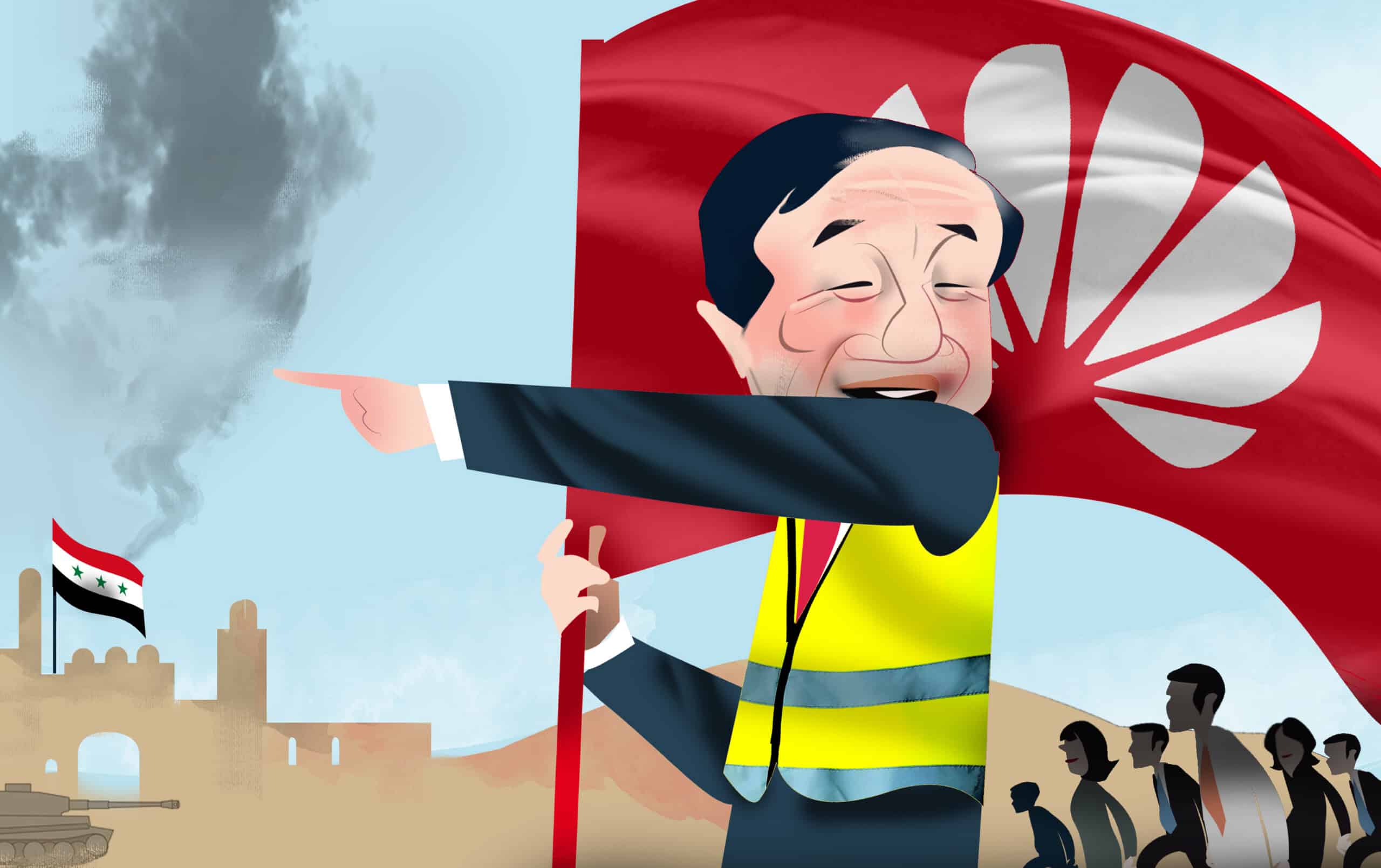
Credit: RELX
RELX Technology was founded in 2018 to tap into a smoking-hot business possibility in China: e-cigarettes. Last month, after becoming the most popular branded e-cigarette company in China in just three years, the company raised $1.4 billion in an initial public offering on the New York Stock Exchange.
Shares of the company jumped 86 percent on the first day of trading, giving RELX a market capitalization of more than $38 billion and making it instantly one of the world’s most valuable e-cigarette brands.
“China is the biggest tobacco market in the world, so it follows that it could be a very conducive environment for vaping products,” says Pieter Vorster, managing director of Idwala Research, an advisory firm focused on tobacco harm reduction. “It could be huge — that’s clearly what investors think.”
Investors seem to be discounting the risks associated with e-cigarettes, which have raised health and safety concerns in the U.S. and elsewhere. There are also regulatory uncertainties in the Chinese market. The government has strict regulations over tobacco products and recently banned online sales of e-cigarettes partly out of concern they were being marketed to minors.
Perhaps one reason is that RELX already commands as much as 60 percent of the fast-growing market in an industry that remains largely unregulated inside China. Investors seem to be betting that e-cigarettes will take share away from traditional tobacco goods, which are considered far more of a health hazard.
Lung cancer is the most diagnosed cancer in China and the government has launched initiatives to control smoking. Vaping, while still controversial as a healthy alternative, fits within government efforts to expand smoke free environments — or at least to reduce consumption and quell health costs.
RELX — which got early backing from Sequoia Capital China, IDG Capital and Source Code Capital — appears well positioned, as China banned the online sale of vaping products two years ago. The company says it sells most of its goods offline. According to its prospectus, RELX has 5,000 branded partner stores and “over 100,000 other retail outlets nationwide, covering over 250 cities in China.”
Its spectacular rise is something of a surprise. Before RELX hit the market, China was better known as the world’s dominant manufacturer and exporter of e-cigarettes. In 2019, however, sales of e-cigarettes were estimated at $1.5 billion nationwide.1E-cigarette sales globally were about $15 billion in 2019. Analysts expect China to eventually become a leading consumer of e-cigarettes.
“The consumption has risen rapidly in other areas of the world, but has not until recently in China itself,” says Jonathan Fell, the co-founder of Ash Park Capital, a London-based consumer goods investment manager. “RELX came along and decided, ‘We are going to have a crack at marketing these to China consumers as well.’ ”
There is a big unanswered question: will the state let the e-cigarette industry grow and flourish and take away revenue from tobacco? Or will they try to step in at some point?
Jonathan Fell, the co-founder of Ash Park Capital, a London-based consumer goods investment manager
The listing made a billionaire out of RELX’s co-founder, Kate Wang, who earned an MBA from Columbia University and worked in Beijing at Bain & Company and the ride-hailing giants Uber China and Didi Chuxing. The company’s other top executives came from Huawei, Uber and Didi. How RELX managed to corral so much of the market so quickly is not clear. Wang has not given an interview since the listing and RELX declined to comment for this article.
Foreign competitors, in some cases, have been sidelined. JUUL Labs, the popular U.S. based e-cigarette company owned in part by Altria Group, the American tobacco company, attempted to enter the China market in 2019 by selling vaping devices on Tmall and JD.com, two Chinese e-commerce platforms.
A few days later, JUUL’s products were pulled from the platforms without explanation. Later that year, the Chinese government also banned online sales and advertising of e-cigarettes amid increased health concerns, raised notably in the United States, and questions about how vaping was marketed to youth.
Smoore International Holdings Ltd., a Chinese manufacturer that went public in Hong Kong in 2020, raising more than $1 billion, is considered a serious competitor in the vaping industry, but its business mostly consists of supplying products to e-cigarette companies in other parts of the world, rather than selling branded products like RELX.
China is home to nearly one-third of the world’s smokers, according to World Health Organization data. So far, the switch to vaping has been significant in the United States and the United Kingdom, according to the RELX prospectus, while China lags. Some researchers expect this to change.
“Influenced by traditional tobacco culture and barely no mature e-cigarette brand at the early stage, the awareness and consumer acceptance of e-cigarette products in China are lower than Europe, Japan and the U.S,” says Wesley Xiang, the executive director of Frost & Sullivan China, a consulting and research firm. “With the development of e-cigarette manufacturers and brands in recent years, the penetration rate of e-cigarettes in China is expected to increase rapidly.”

Credit: Mussi Katz
The online-sale ban in 2019 may have actually helped RELX, whose team members appeared to have logistics experience, analysts said. The government’s crackdown “made life particularly difficult for smaller brands with limited distribution options,” says David Palacios Rubio, managing editor for news at ECigIntelligence, a market analysis provider.
A looming uncertainty is whether China National Tobacco Corporation, a state-owned monopoly which sells, manufactures, and regulates cigarettes, will take control of their electronic counterparts, either by enforcing strict regulations on the industry or selling their own e-cigarettes.
“There is a big unanswered question: will the state let the e-cigarette industry grow and flourish and take away revenue from tobacco? Or will they try to step in at some point?” says Ash Park’s Fell. “The stock price for RELX reflected excitement about what the market could be, but it was tempered by the potential of future regulation.”
China has already shown that it can use national health aims as a motive. “How quickly will the government pivot towards lower risk nicotine products?” says Shane MacGuill, senior head of tobacco research at Euromonitor International, a London-based market research firm. “It is difficult to see the e-cigarette market continue being unregulated or unco-opted.”
Tensions between China and the United States remain high, but Chinese companies have shown no lack of enthusiasm for a Wall Street listing or western investors. Chinese stock listings in the United States reached a six-year high in 2020, Reuters reported. Some analysts see RELX’s IPO as a starting bell for 2021.
“There is an expectation among Chinese firms that under the new U.S. administration, U.S.-China tensions would ease and there may even be a possibility that President Biden may revoke the many disruptive executive orders signed by Trump,” says Tianlei Huang, a research fellow at the Peterson Institute for International Economics, a Washington-based think tank. “The booming U.S. stock market and the ample liquidity in it are also making Chinese companies keen on getting listed in the US.”
“Tobacco would have been a great business if it didn’t kill people,” says Idwala’s Vorster. “So there is a huge interest in next generation products like RELX e-cigarettes.”

Katrina Northrop is a journalist based in New York. Her work has been published in The New York Times, The Atlantic, The Providence Journal, and SupChina. @NorthropKatrina



